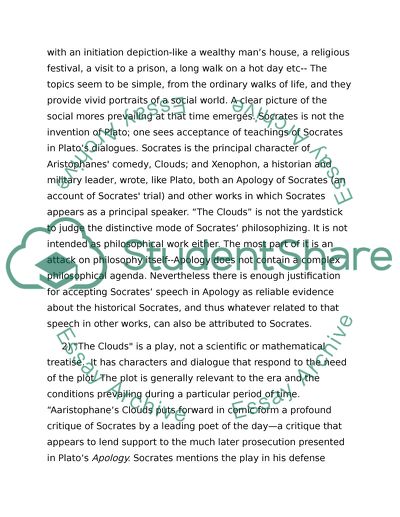Cite this document
(“History Of The Philosophical Discussions Book Report/Review”, n.d.)
History Of The Philosophical Discussions Book Report/Review. Retrieved from https://studentshare.org/philosophy/1731996-5-essay-problems-about-the-book-four-texts-on-socrates-by-thomas-g-west
History Of The Philosophical Discussions Book Report/Review. Retrieved from https://studentshare.org/philosophy/1731996-5-essay-problems-about-the-book-four-texts-on-socrates-by-thomas-g-west
(History Of The Philosophical Discussions Book Report/Review)
History Of The Philosophical Discussions Book Report/Review. https://studentshare.org/philosophy/1731996-5-essay-problems-about-the-book-four-texts-on-socrates-by-thomas-g-west.
History Of The Philosophical Discussions Book Report/Review. https://studentshare.org/philosophy/1731996-5-essay-problems-about-the-book-four-texts-on-socrates-by-thomas-g-west.
“History Of The Philosophical Discussions Book Report/Review”, n.d. https://studentshare.org/philosophy/1731996-5-essay-problems-about-the-book-four-texts-on-socrates-by-thomas-g-west.


